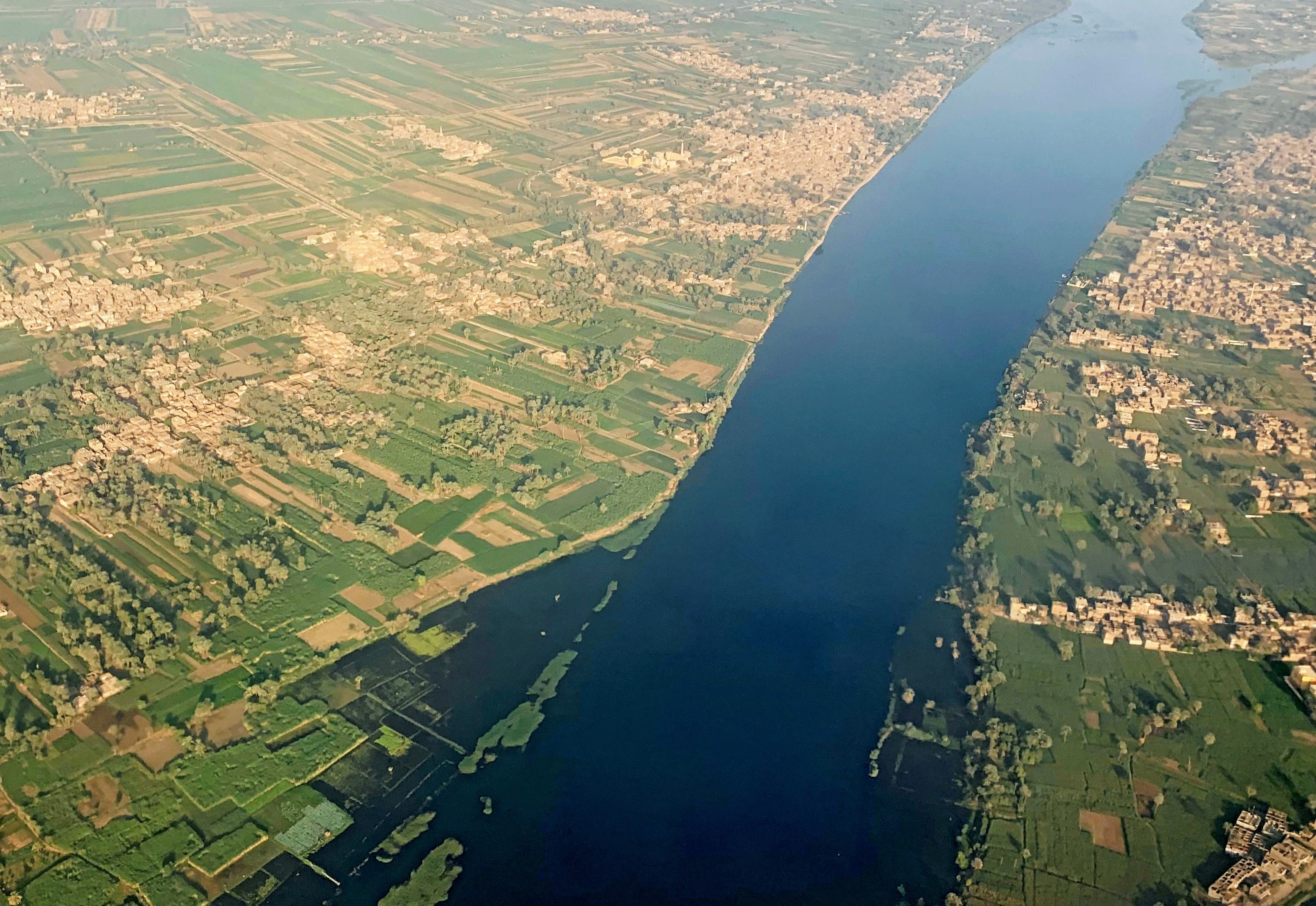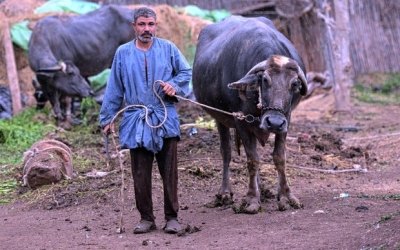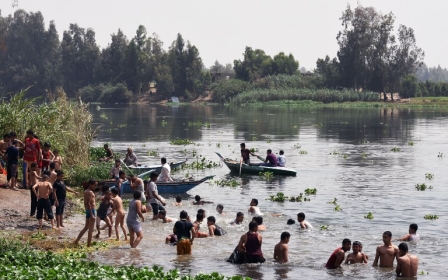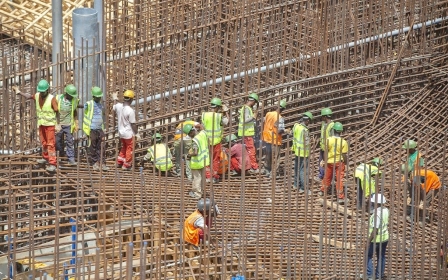Why the US wants to avert conflict over the Nile

As tension continues to mount in the Nile River Valley over Ethiopia’s ambitious Great Ethiopia Renaissance Dam (GERD) Project, US President Donald Trump's administration hosted tripartite talks on 6 November intended to identify steps towards a negotiated agreement.
At the heart of the disagreement is Egypt’s contention that GERD will seriously impede the flow of the Nile into Egypt and that, as such, the dam poses an existential threat to the country. Ethiopia counters by claiming that it has a right to develop its portion of the Nile as it sees fit and that the dam will not affect the Nile’s flow into Egypt.
Vladimir Putin’s offer of assistance to Egypt to mediate talks is yet another sign of Russian efforts to expand its presence in the Middle East and Horn of Africa
Led by US Treasury Secretary Stephen Mnuchin, the talks involved the foreign ministers from the three riparians, as well as World Bank President David Malpass.
Although details of the discussions are only now emerging, the official statement issued at the conclusion of the meeting indicated that all countries had agreed to continue technical talks involving the countries’ water ministers. The goal is to have an agreement in place by mid-January. The United States and World Bank will “support and attend” the talks.
While US involvement in this issue is not new, what was unique about these recent discussions was the fact they were led by the treasury department, and not the Department of State. Until these talks, the department of state seemed to have had the lead on efforts to deal with the crisis.
New MEE newsletter: Jerusalem Dispatch
Sign up to get the latest insights and analysis on Israel-Palestine, alongside Turkey Unpacked and other MEE newsletters
US rationale
As recently as January 2019, Secretary of State Mike Pompeo met with his Egyptian counterpart, Sameh Shoukry, for discussions in Cairo that included the increasing tension between Egypt and Ethiopia over the GERD project.
Before that, Deputy Assistant Secretary of State Eric Stromeyer from state’s Bureau of African Affairs, had led a US delegation to the region in 2018 to look for ways to tone down the bellicose rhetoric coming from both Egypt and Ethiopia. And, the state department had been following the issue since 2011, when GERD was first announced.
Having these two countries come to blows over the Nile’s waters would threaten US friends and interests in the region
To date, there has been little explanation from the White House as to why treasury, and not state, has recently taken the lead on US efforts to deal with this crisis. The rationale for some kind of US involvement in this issue, however, is compelling.
On the one hand, as Russia’s recent engagement with Syria and Turkey indicate, it continues to search for ways of inserting its influence in the region, often to the detriment of long-standing US interests. Vladimir Putin’s offer of assistance to Egypt to mediate talks is yet another sign of Russian efforts to expand its presence in the Middle East and Horn of Africa and pull countries in the region away from the US sphere of influence.
Moreover, there can be no doubt that the GERD project could become an even more combustible flashpoint between Egypt – the most populous and militarily powerful country in the Nile Valley - and Ethiopia, a growing economic and political power in the region. Having these two countries come to blows over the Nile’s waters would threaten US friends and interests in the region.
Electricity exporter
When Ethiopia launched GERD in 2011, the country’s leadership argued that the dam was intended to jumpstart economic development in the country by ensuring a predictable supply of water for irrigation and, more importantly, by generating badly needed electricity.
In addition, any unused electricity could be sold to Ethiopia’s neighbours. Indeed, Ethiopia has announced it wants to be the largest exporter of electricity in Africa.
While Ethiopia argues that GERD will be for hydro-electrical purposes only, Egypt fears the dam will disrupt the Nile’s flow through Sudan and into Egypt, and thereby threaten Egypt’s very existence, given Egypt’s near total dependence on the Nile for its water supply.
While Ethiopia argues that GERD will be for hydro-electrical purposes only, Egypt fears the dam will disrupt the Nile’s flow
Since construction began in 2011, Egypt has argued that Ethiopia must guarantee that Egypt and Sudan will continue to receive 55 billion cubic meters (bcm) and 18 bcm, respectively, of the Nile’s annual flow; these percentages were stipulated in the 1959 Nile Waters Agreement between Egypt and Sudan. Successive Egyptian governments have stated that any diminution to these flows could be a cause for war.
Recently, as the dam has neared completion and Ethiopia has begun to fill the reservoir behind it, a new disagreement has erupted between Ethiopia and Egypt, this time concerning the rate at which the reservoir is filled.
Ethiopia, wanting to ensure that it can generate as much electricity as possible as quickly as possible, has said it would seek to fill the reservoir in as little as three years. Egypt, in turn, has argued that such a short time frame will drastically affect the downstream flow into Sudan and Egypt, and has vehemently argued for a much longer time frame – possibly up to seven years.
Outside mediator
Despite threats from both countries about military action, Egypt and Ethiopia have demonstrated a willingness to engage in negotiations as a means of resolving tensions and identifying a way forward.
For the most part, these negotiations have involved the countries’ water ministries and other technical experts. While such talks continue, however, they have often been overshadowed by the sabre-rattling of the countries’ political leadership. This brings us back to the recent talks in Washington.
Egypt has long argued that an outside mediator was required to break the deadlock and help identify a way forward. Until recently, Ethiopia has rejected the need for mediation, and insisted on bilateral or trilateral discussions.
Ethiopia’s decision to attend the Washington talks with Sudan and Egypt could be a hopeful sign of greater willingness in the future to engage with its neighbours on resolving tensions over the Nile.
It is in the best interest of the Nile Valley – and the broader region – that all countries continue to demonstrate a desire to negotiate, rather than rush to armed conflict.
The views expressed in this article belong to the author and do not necessarily reflect the editorial policy of Middle East Eye.
This article is available in French on Middle East Eye French edition.
Middle East Eye delivers independent and unrivalled coverage and analysis of the Middle East, North Africa and beyond. To learn more about republishing this content and the associated fees, please fill out this form. More about MEE can be found here.







